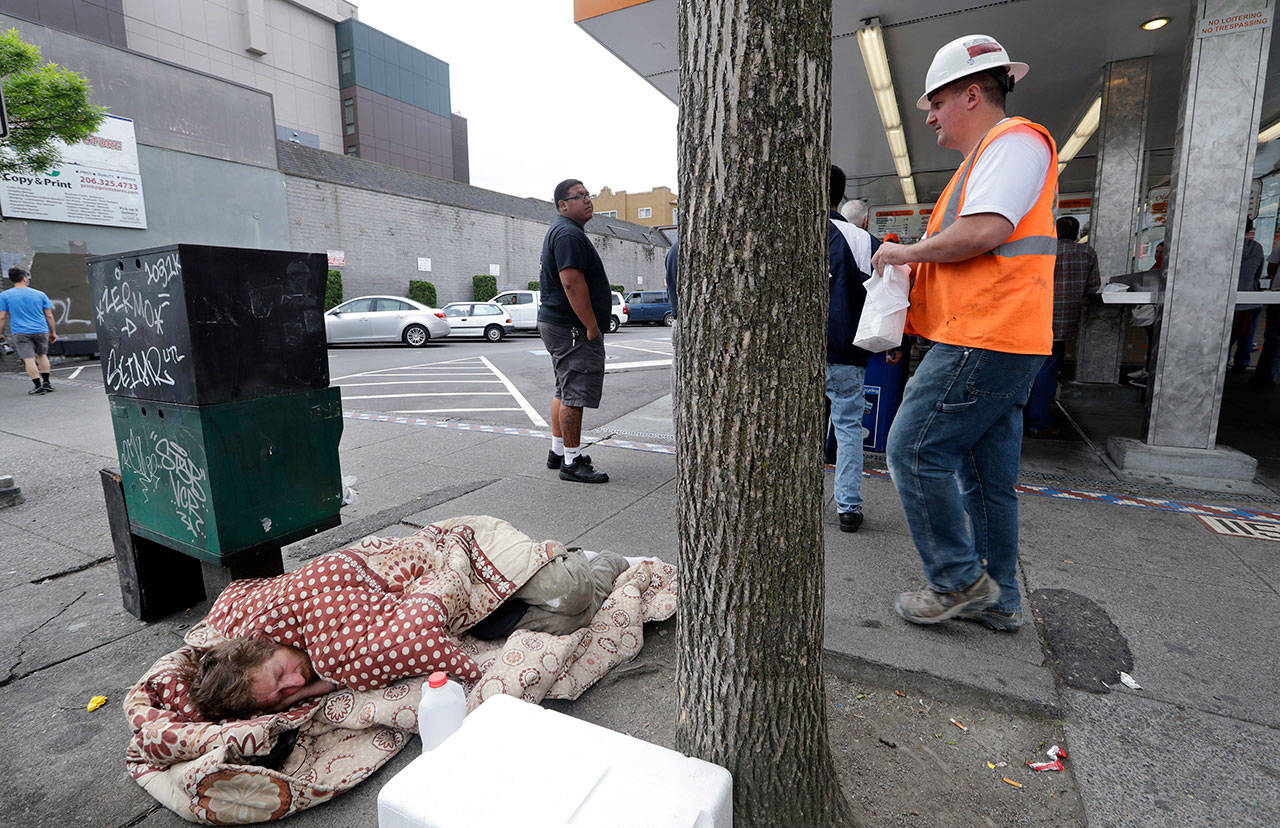By Sally Ho
The Associated Press
SEATTLE — As the Seattle area tries to tackle its homelessness crisis, an official wants to spend $1 million to expand a strategy of buying bus tickets out of town for people living on the streets.
The concept of sending homeless people back to where they say they’re from or might have support has been in place for decades in parts of the U.S. struggling to get people off the streets. Big cities such as San Francisco and New York and smaller communities such as West Palm Beach, Fla., have such programs.
The city of Seattle and community organizations already offer free bus tickets as part of their broader approach to homelessness. Reagan Dunn, a council member in King County, where Seattle is located, wants to go a step further by creating a standalone bus ticket program that will emphasize “family reunification.”
Dunn unveiled his proposal last Tuesday as the city and county consider merging services to better combat rising homelessness across an area dominated by tech companies such as Amazon and where income inequality and housing prices are skyrocketing, a pattern seen in other West Coast cities.
Dunn said his plan targets roughly 1,000 homeless people who said they wanted to reconnect with family as officials counted 11,200 people living in shelters or outdoors in King County one night in January.
Seattle officials have said its homelessness diversion program allows people to determine how the city can best help them, whether that’s deposit money for rental housing, car repairs or finding a way to return home for long-term support if it’s “a safe and realistic solution.”
“Seattle’s diversion program is not focused on one solution — such as transportation home when it is outside of Seattle. Our program is person-centered, client-driven and provides a diverse array of support,” said Kamaria Hightower, a spokeswoman for Seattle Mayor Jenny Durkan.
Dunn, who represents part of the wealthy Seattle suburb of Bellevue and the southeastern corner of Washington’s most populous county, said his pilot program would be better funded and promoted than the city’s piecemeal approach. He said the money would come from reserves.
“We have the highest homelessness rate per capita because we’re promoting failed policies,” said Dunn, who opposes combining county homelessness services with Seattle. “We don’t need more government to promote Seattle-centric policies.”
It’s not clear what strings would be attached to his proposed bus ticket program, which would have to be approved by the County Council.
An investigation by The Guardian in 2017 showed how some cities failed to properly track the people who were sent away or banned them from using public services such as shelters or case managers if they returned after taking a one-way bus or train ticket out of town.
Dunn said he doesn’t want to limit future eligibility for all homelessness services but that restrictions should be considered in the debate. He said he would support limits to prevent people from repeatedly getting bus tickets.
Critics have said transportation assistance can help a limited number of people facing homelessness but that it’s an imperfect system that could merely reshuffle an already vulnerable population and doesn’t address chronic homelessness.
“That type of program model is one that is pretty obviously not designed to end homelessness. It’s designed to get homeless people out of town,” said Tristia Bauman, senior attorney at the National Law Center on Homelessness & Poverty.
Dunn said his proposal is “a good place to start.”

